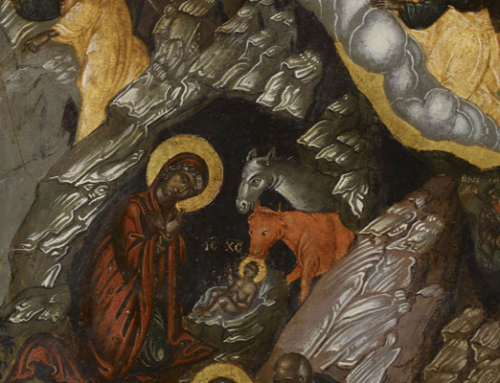Today would have been the opening day of Woodstock 50, a celebration of the pivotal music festival of 1969 that took place on a farm half a century ago in New York from August 15th – 18th. Woodstock 50 was recently cancelled—and its death was slow and painful. One of the original performers was recently quoted saying, “Woodstock is in our mind … Not the present or the past. It can happen anytime, anywhere.” Does this dream hold up against the harsh reality of organizational disaster, and the exhaustion of the 1969 ideology that the disaster vividly symbolizes?
Joni Mitchell’s 1970 song “Woodstock” is a theological reflection on the previous year’s storied event. The song was covered by multiple luminaries of the age, and its refrain goes:
We are stardust
We are golden
And we’ve got to get ourselves
Back to the garden.
In the 1970’s there was a hope that we were going to find our way back to the Garden of Eden (Gen 2:7-18). The garden is inscribed in us as a deep memory: it is a state of friendship with the Divinity, in which we ourselves enjoyed a certain divinity, by God’s favor. Our parents teach us that, because of the sin of our common first parents, we were cast out of this state. Heady with the revolutionary successes of the 1960’s, some thought: maybe, if we can shatter this illusion of sin, just as we have shattered so many other teachings of our parents, we can “get ourselves back to the garden.”
But Mary Magdalene shows a better way. John’s Gospel (Jn 20:1-18) presents Mary as a determined explorer who braves the darkness of sin and is led back to the garden. Acknowledging sin, she became the first preacher of sin’s divine defeat in the Resurrection.
In this Mary, we find an image of Eve. Three persons address Mary as “Woman,” recalling the first woman (Jn 20:13, 15; cf. Gen 2:23). She is conquered by death and passion, the effects of sin. Weeping and confused, she is brotherless, fatherless, friendless, and alone. Like the Bride of the Song of Songs (3:1-4), it is the search for her beloved which sends her out into the dark, in sorrow and in fear, but in hope.
But “on the first day of the week, while it was still dark” (Jn 20:1), Mary’s desperate love brings her stumbling into the garden, as if she had found a portal back to the beginning. The seven days of the first creation are over; this is the eighth and first day, before the new Light appears (cf. Gen 1:2). Mary’s vision is still dimmed by fear and sorrow, the effects of sin. But her wounded power of vision is almost prophetic: when she meets the one her heart sought, “She thought it was the gardener” (Jn 20:15).
On the first day of the week, God reveals the garden. Its gardener is Christ. He is the forgiveness of sins and the uncreated joy which marks all creatures as a deep memory. Angels, who once guarded the garden, speak to Mary Magdalene as if she has surprised them off-duty (Gen 3:24; Jn 20:11-13). With Mary our sister, we rejoice that this gardener is still working among us, repairing day by day the paths of friendship that were once lost.
Jesus says to Mary, “I am going to my Father and your Father, to my God and your God” (Jn 20:17). Jesus is the only way back to the garden, through faith, hope, and love of him. Woodstock promised love. It offered a new faith, without sin. But its hope of rediscovering the garden is wearing thin.
✠






